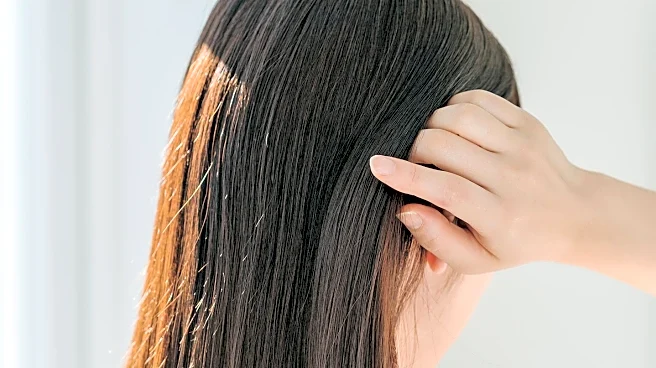What's Happening?
Hair thinning during menopause is a common issue affecting over half of women aged 50 to 65. This condition is primarily caused by hormonal changes, including increased androgens and decreased estrogen and progesterone levels, which affect hair follicles. Dermatologists Hope Mitchell and Shino Bay Aguilera explain that these hormonal shifts can lead to hair becoming thinner, finer, or shedding more easily. Other factors such as genetics, stress, and nutritional deficiencies can exacerbate the problem. While hair thinning can stabilize for some women once hormone levels settle, others may continue to experience it.
Why It's Important?
Understanding the causes of hair thinning during menopause is crucial for women experiencing this condition, as it can significantly impact self-esteem and quality of life. By identifying the hormonal and lifestyle factors involved, women can take proactive steps to manage their hair health. This includes dietary adjustments, stress management, and using supplements like Nutrafol Women's Balance, which addresses hormonal shifts and nutritional needs. Dermatologists can also offer treatments such as low-level laser therapy and platelet-rich plasma to stimulate hair growth. These interventions can help women maintain healthier hair and improve their overall well-being during menopause.
What's Next?
Women experiencing rapid hair thinning or significant changes in hair density should consult a dermatologist for personalized advice. Early intervention can provide more treatment options and potentially better outcomes. As research continues, new therapies and products may become available to further support women in managing menopause-related hair thinning. Emphasizing a holistic approach that combines medical treatments with lifestyle changes will likely remain a key strategy in addressing this issue.











